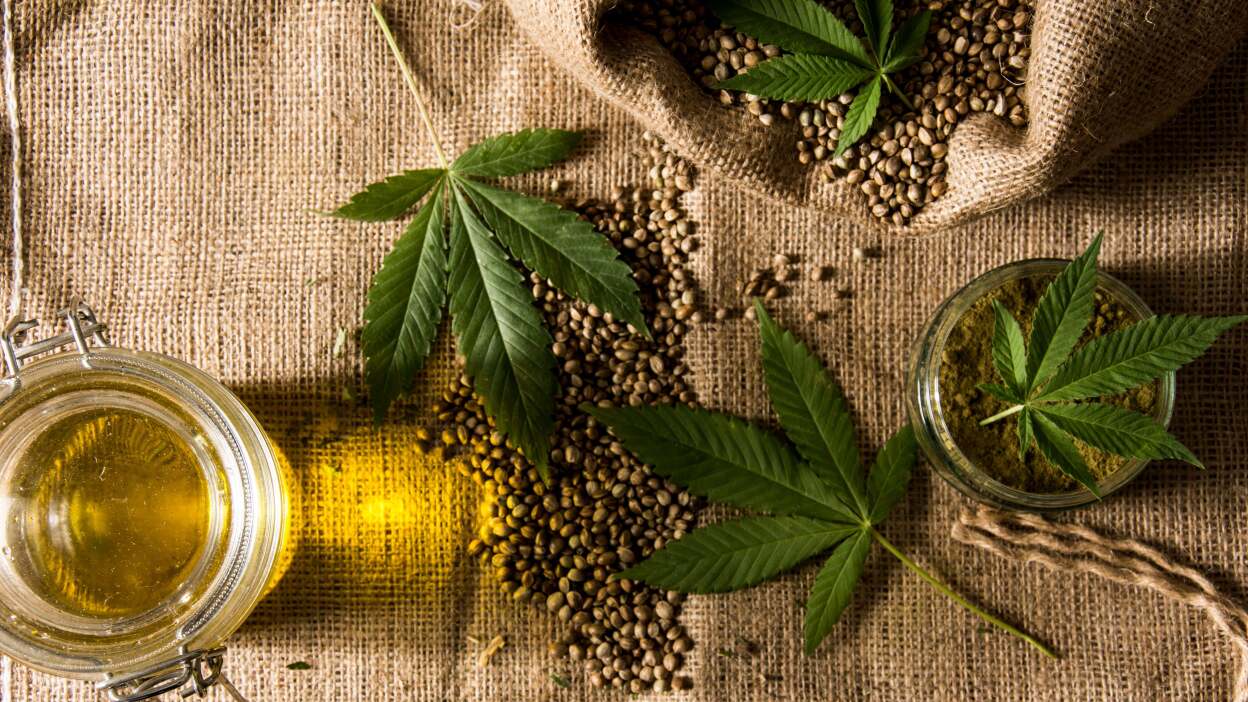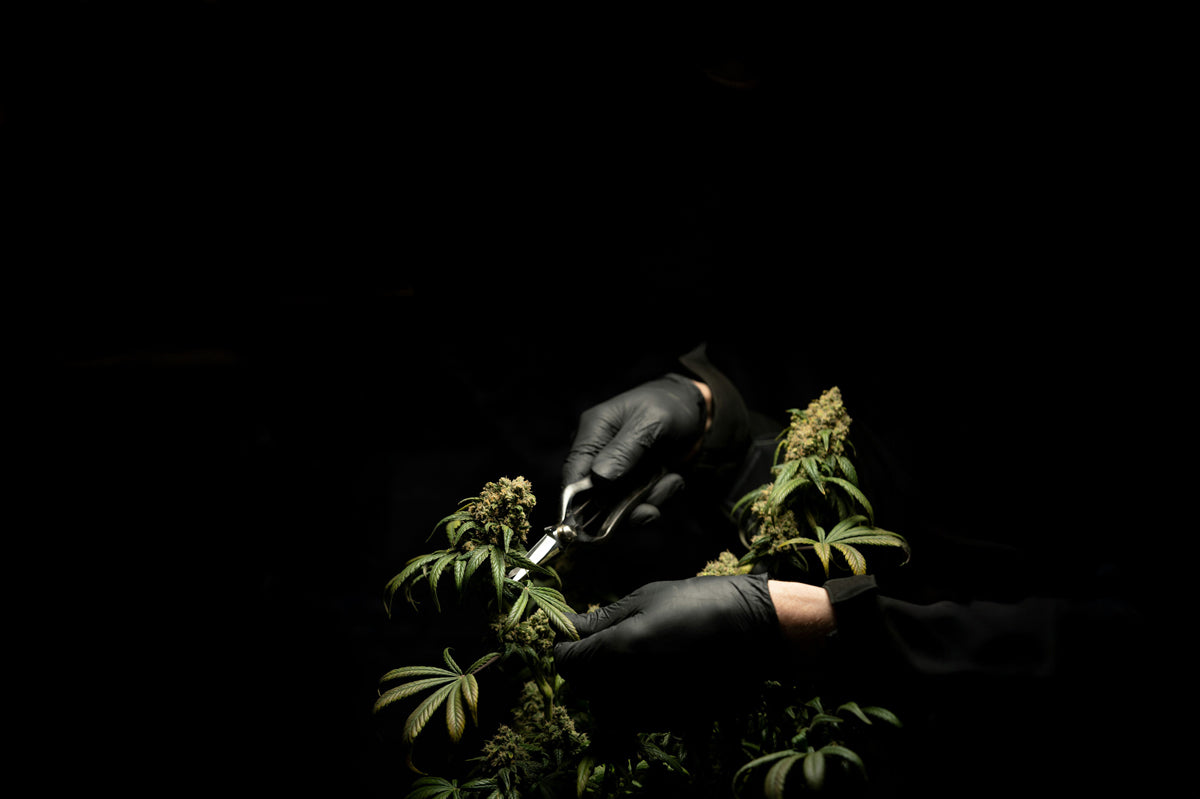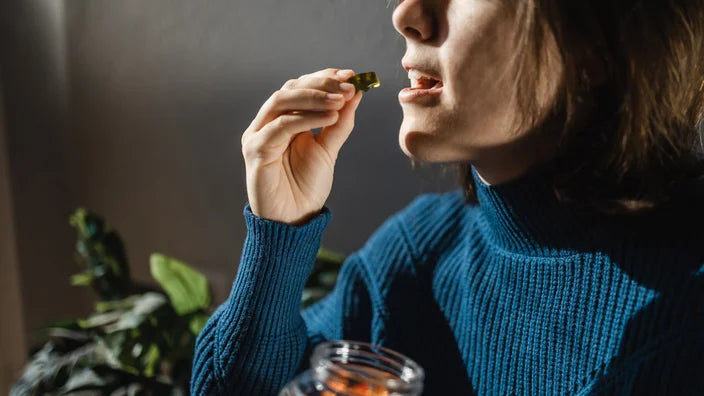
Frequently Asked Questions
CBD Basics
What is CBD?
CBD is an abbreviation for Cannabidiol, a naturally occurring molecule found in the cannabis (hemp) plant. It interacts with your body’s endocannabinoid system (ECS) which regulates a wide range of biological functions.
Where is CBD legal?
The 2018 Farm Bill legalized CBD by removing it from the Controlled Substances Act, making it legal to possess, consume, and sell across the United States. Hemp and its derivatives containing less than 0.3% THC are fully compliant with federal law.
What is the difference between CBD oil and hemp oil?
In simple terms, CBD oil contains CBD, while hemp oil does not. Hemp oil is made by cold-pressing hemp seeds, much like olive oil, and while it lacks cannabinoids, it is highly nutritious and beneficial for other purposes.
How is hemp different from marijuana?
Both hemp and marijuana share the scientific name Cannabis sativa, with the distinction between them being purely legal and somewhat arbitrary. Hemp is defined as containing less than 0.3% THC, while marijuana typically has THC levels ranging from 15-25%. The CBD and THC content in these plants is largely determined by their genetic makeup.
CBD Science
How is CBD different from THC?
CBD and THC are similar molecules with distinct characteristics. CBD is non-intoxicating, while THC can produce mind-altering effects. Both interact with the body’s endocannabinoid system (ECS) and are used to address various ailments. By adjusting the CBD-to-THC ratio in products, their effects can be tailored to specific needs, though many states regulate the allowable THC content. Both cannabinoids are naturally found in the flowers of the hemp plant.
How does CBD work?
CBD works with the body’s endocannabinoid system (ECS), which plays a vital role in regulating various biological processes, including sleep, appetite, immune function, pain response, and mood. Because the ECS influences so many functions, modulating it can produce wide-ranging effects. Unlike most pharmaceuticals, which involve a single compound targeting one specific receptor to produce a specific effect, CBD and other hemp extracts interact with multiple ECS receptors in diverse ways. This complexity makes it challenging to link one compound to a single receptor or effect, posing significant hurdles for CBD and plant-based derivatives in clinical trials.
Where does CBD come from?
CBD is naturally produced in the cannabis plant, primarily in the flowers of unpollinated female plants. Alongside other cannabinoids found in hemp, CBD serves as a natural antifungal, antibacterial, and insecticidal agent, helping to protect the plant from environmental threats.
What do people use CBD for?
Federal regulations prevent us from making specific claims about the products we carry. We recommend using them to support general wellness and encourage customers to do their own research.

Experience the natural power of CBD
THCA - The Legal Precursor to THC
What is THCA?
Tetrahydrocannabinolic acid (THCA) is a naturally occurring compound found in raw and live cannabis plants. While it is closely related to the more widely recognized THC (tetrahydrocannabinol), it differs in ways that influence both its effects and its legal status.
THCA is the precursor to THC in the cannabis plant. During its growth, the plant produces THCA instead of THC. When cannabis is exposed to heat—such as during smoking or vaping—THCA undergoes a process called decarboxylation, converting it into THC.
Unlike THC, THCA (the acid form of THC) is non-psychoactive, meaning it doesn't produce the "high" associated with cannabis use. This is because THCA has a different molecular structure that prevents it from binding effectively to the CB1 receptors in the brain responsible for THC's psychoactive effects.
Where is THCA legal?
THCA currently exists in a legal gray area that makes it federally legal in the United States. How you ask?
The 2018 Farm Bill legalized hemp and hemp-derived products containing less than 0.3% Delta-9 THC. THCA is not specifically mentioned in this bill. THCA is not scheduled. Unlike THC, THCA is not listed as a controlled substance under federal law.
It's important to note that laws can vary by state, and the legal landscape surrounding cannabis compounds is constantly evolving. Always check your local laws and consult with a legal professional for the most up-to-date information.
Does THCA get you "high"?
While THCA itself isn't psychoactive, its easy conversion to THC means that any product containing THCA will become psychoactive when exposed to heat - vaping or smoking.
Is THCA flower different from legal dispensary flower?
THCA flower is the exact same flower you buy from a legal dispensary or from your plug, it's just marketed using the term THCA when sold via the hemp industry.

Discover the height of premium THCA
CBN - The Sleepy Cannabinoid
What is CBN?
CBN, or cannabinol, is a naturally occurring cannabinoid found in the cannabis (hemp) plant. It is typically formed when THC (tetrahydrocannabinol) is exposed to oxygen and light over time, causing it to degrade. While it is not as widely studied as THC or CBD (cannabidiol), CBN has gained attention for its potential therapeutic properties.
Does CBN help with sleep?
CBN has shown to have sedative properties that could relieve conditions like insomnia.
CBD vs CBN - What's the difference?
CBD and CBN are both naturally occurring cannabinoids found in the cannabis (hemp) plant. However, they are not the same. Though CBD and CBN interact with the same receptors in your body, they produce different effects. CBN can be understood as a weaker version of THC. CBN is only mildly psychoactive, especially when compared to THC, and its effects are often described as gentle and relaxing. Early research suggests CBN may have potential benefits, including:
- Acting as a sedative to promote better sleep.
- Possessing anti-inflammatory and analgesic properties.
- Supporting appetite stimulation.
- Offering antibacterial and neuroprotective effects.
Unlike CBD, which is entirely non-psychoactive, CBN in larger doses can produce mild psychoactive reactions.
How can you consume CBN?
Our CBN (cannabinol) products are available in consumables. We offer CBN gummies and tinctures (oil dropper) for an easy and effective way to consume CBN.

